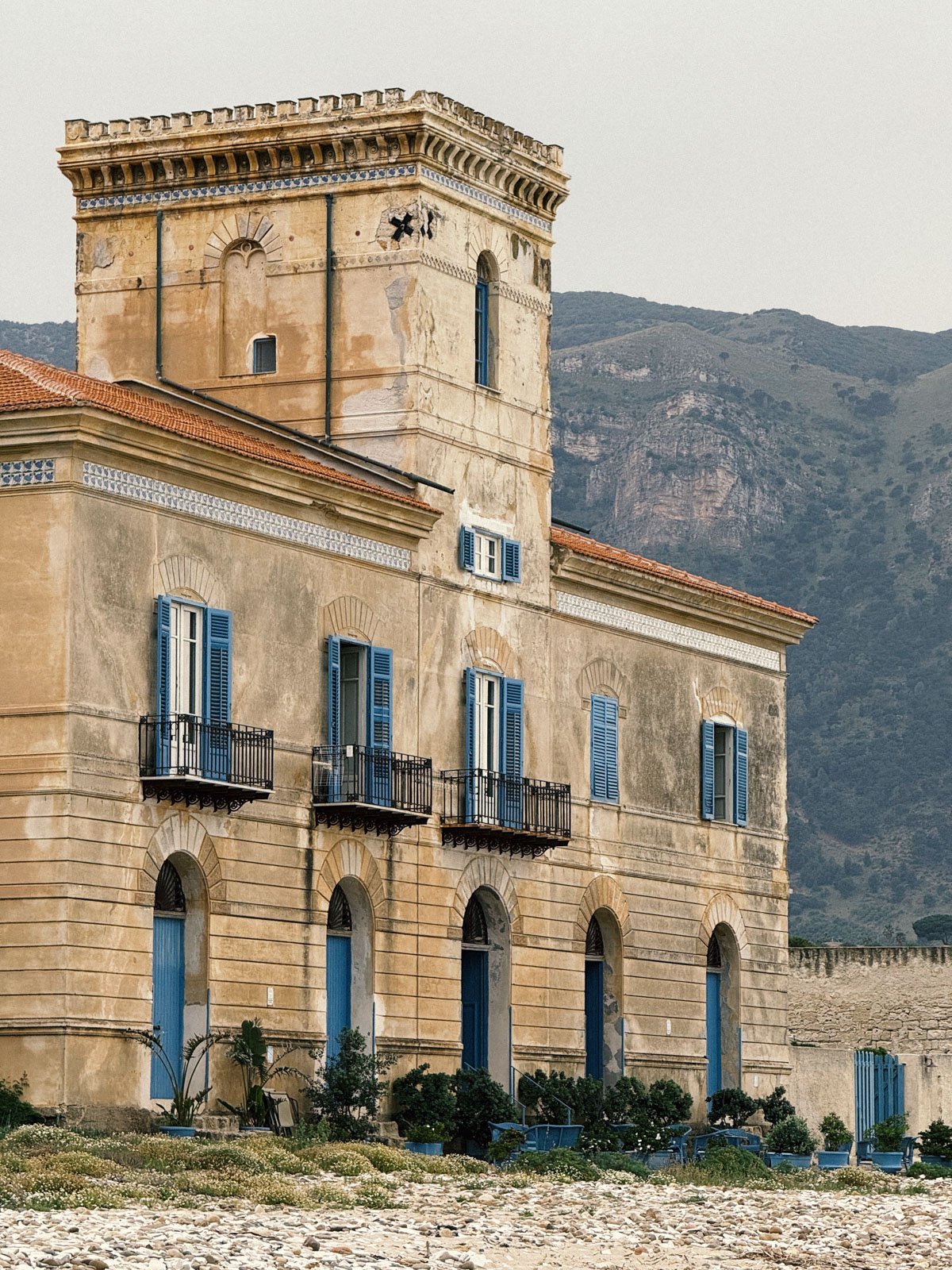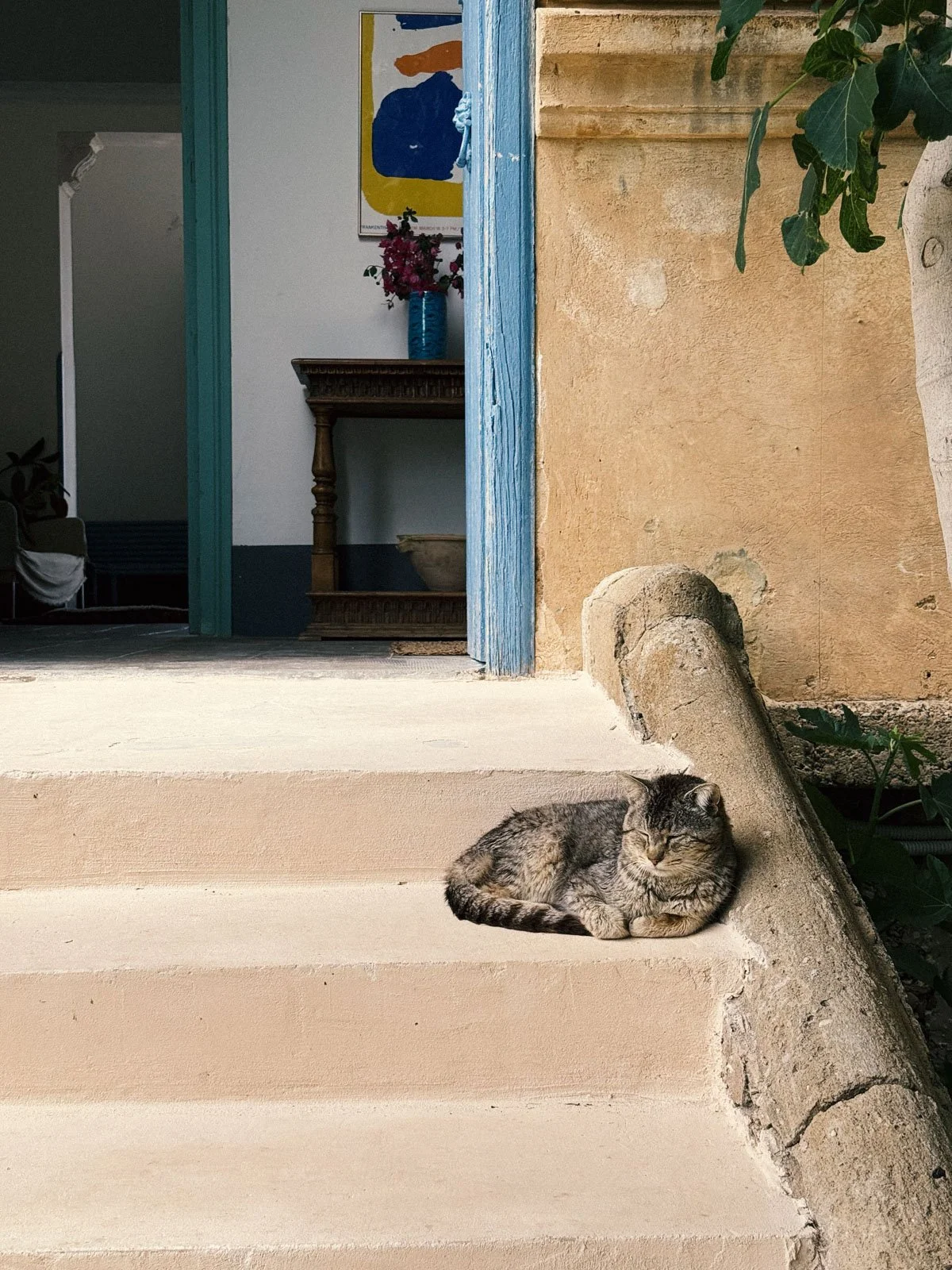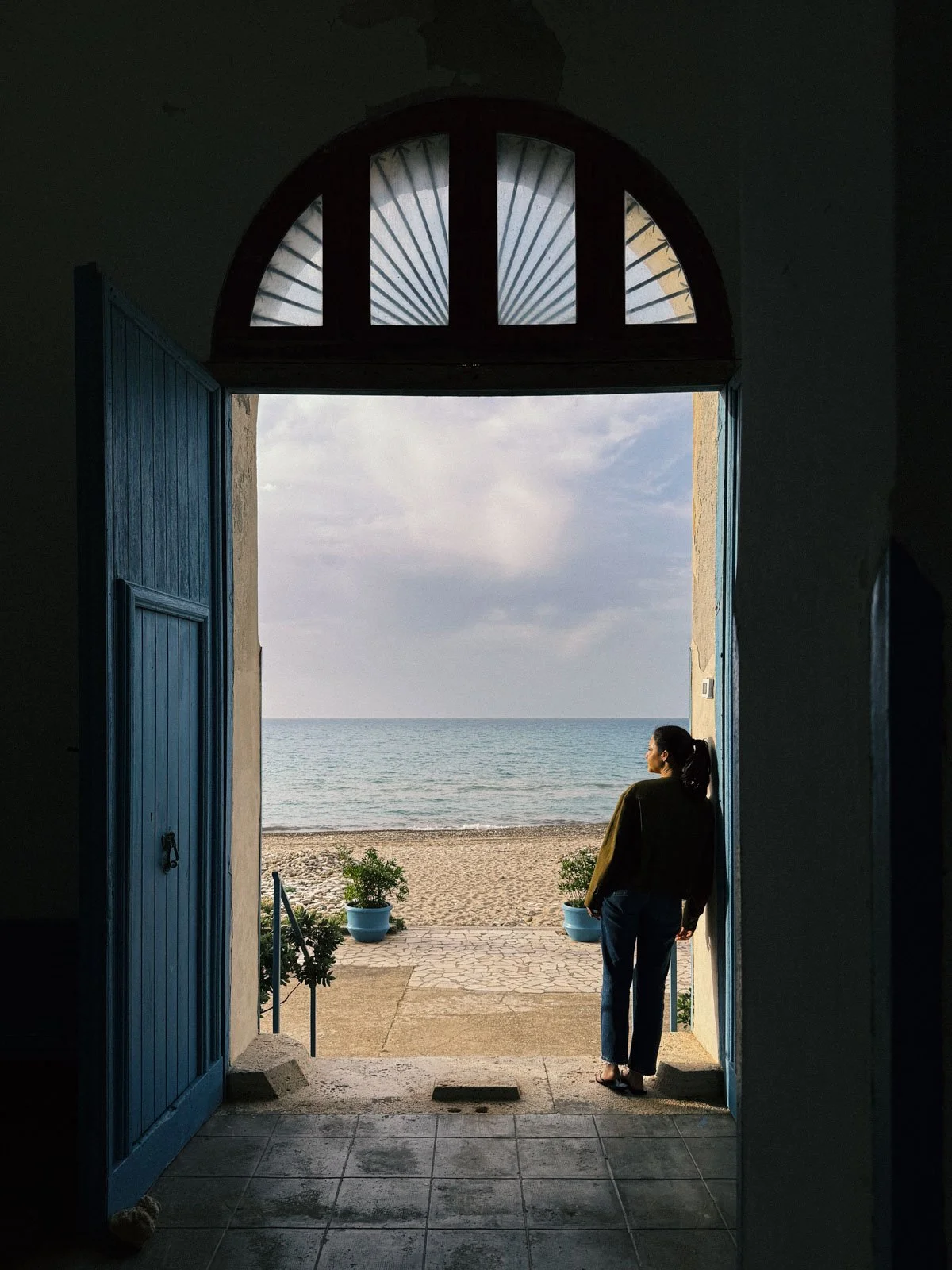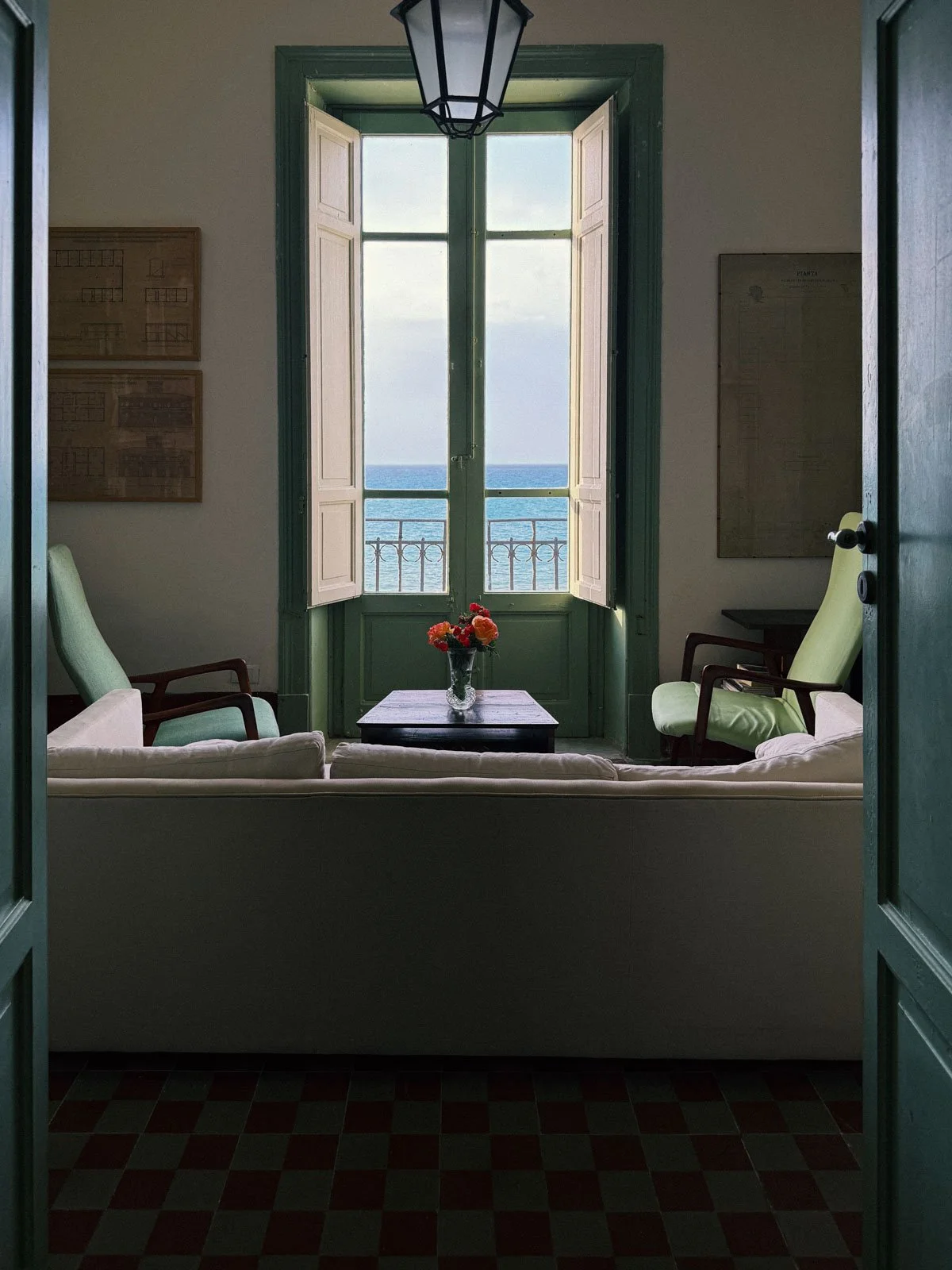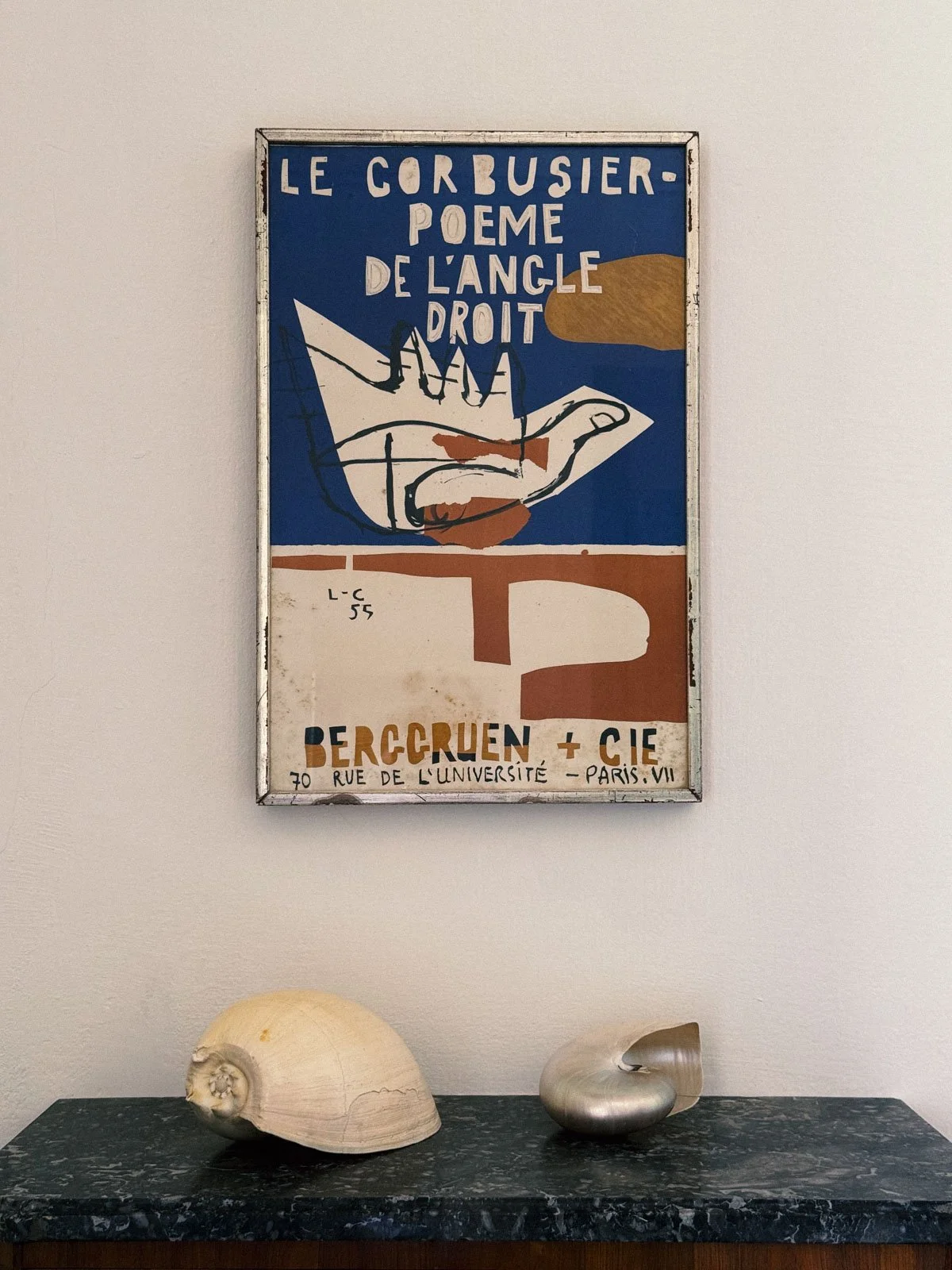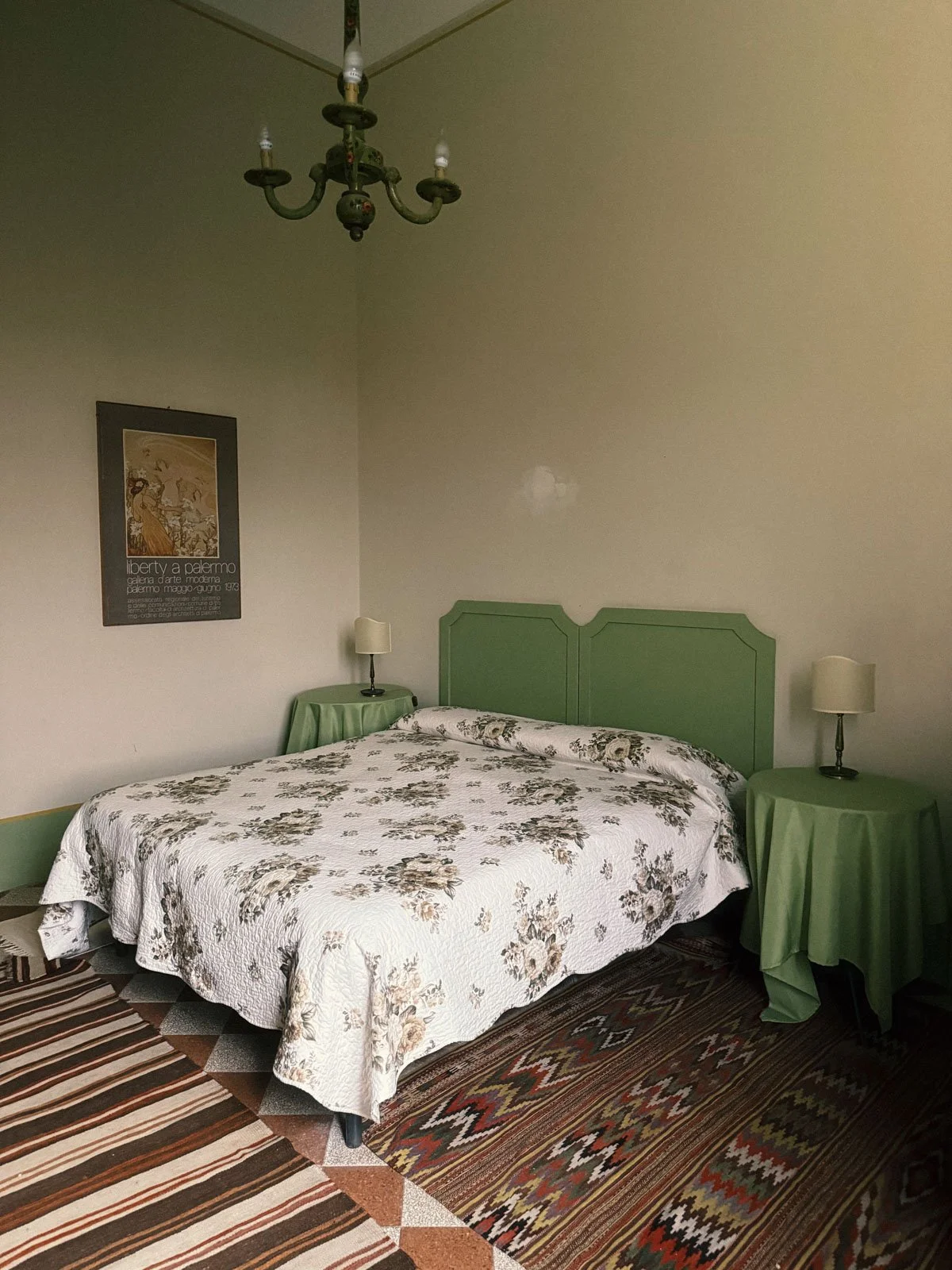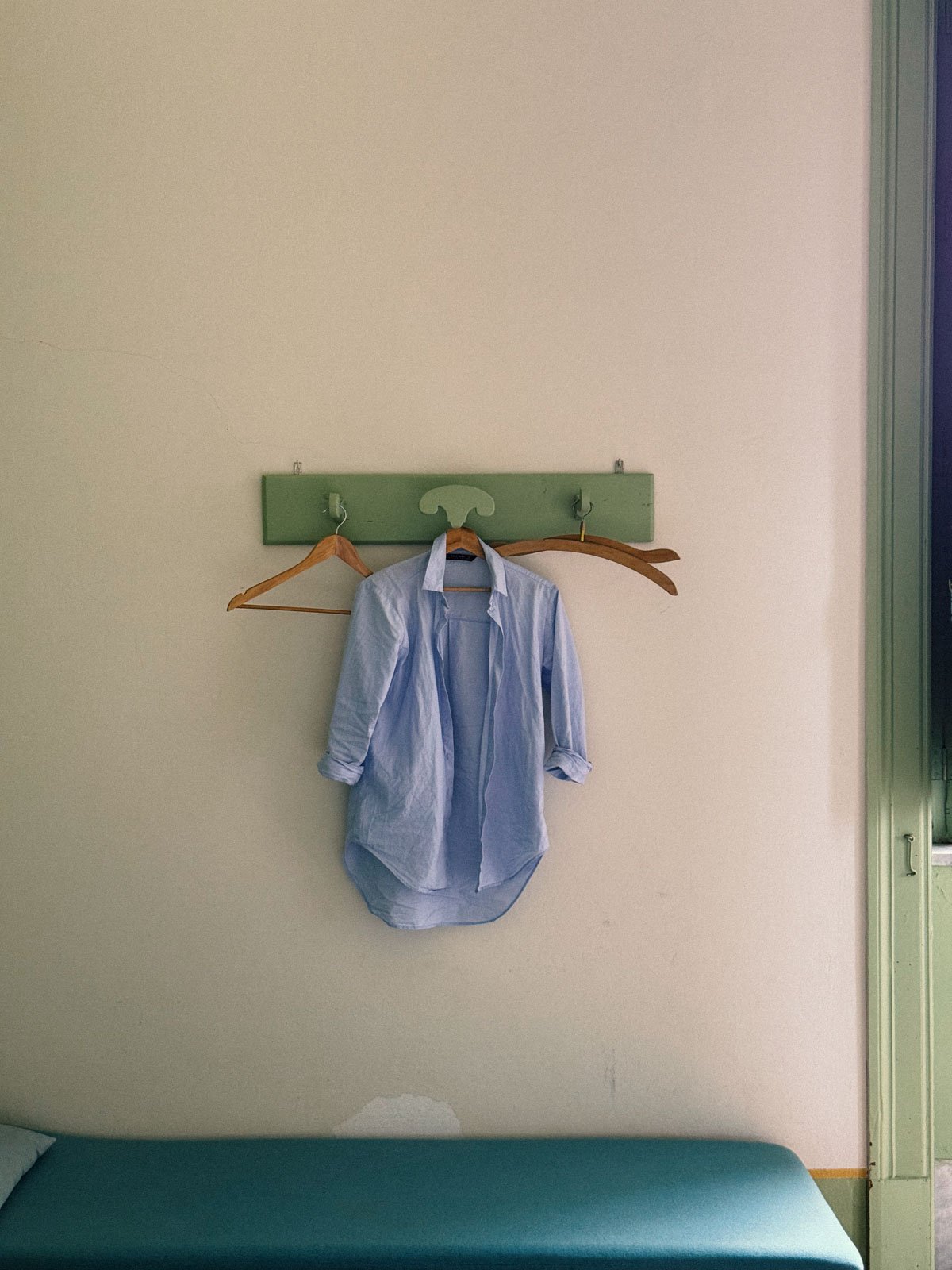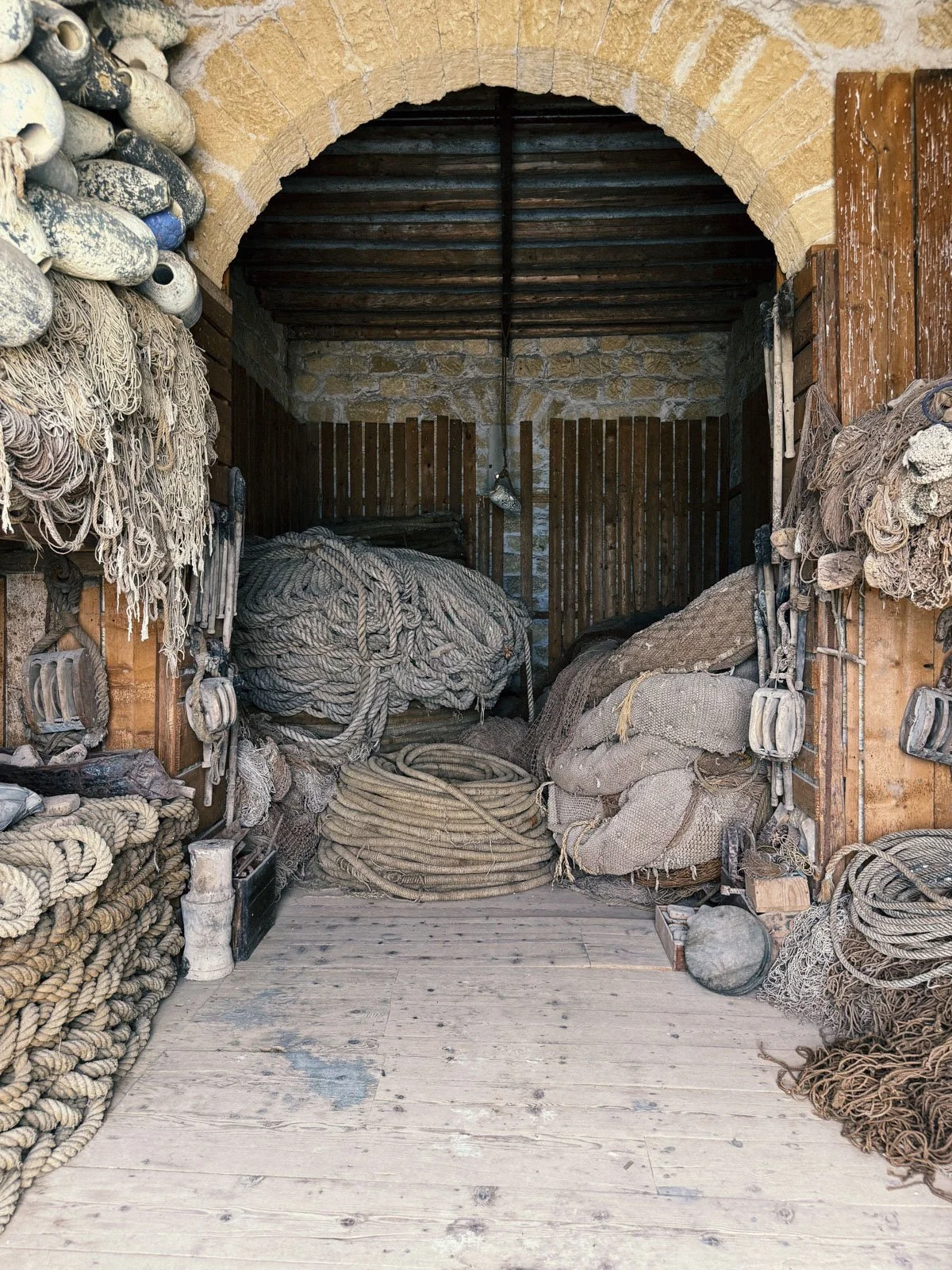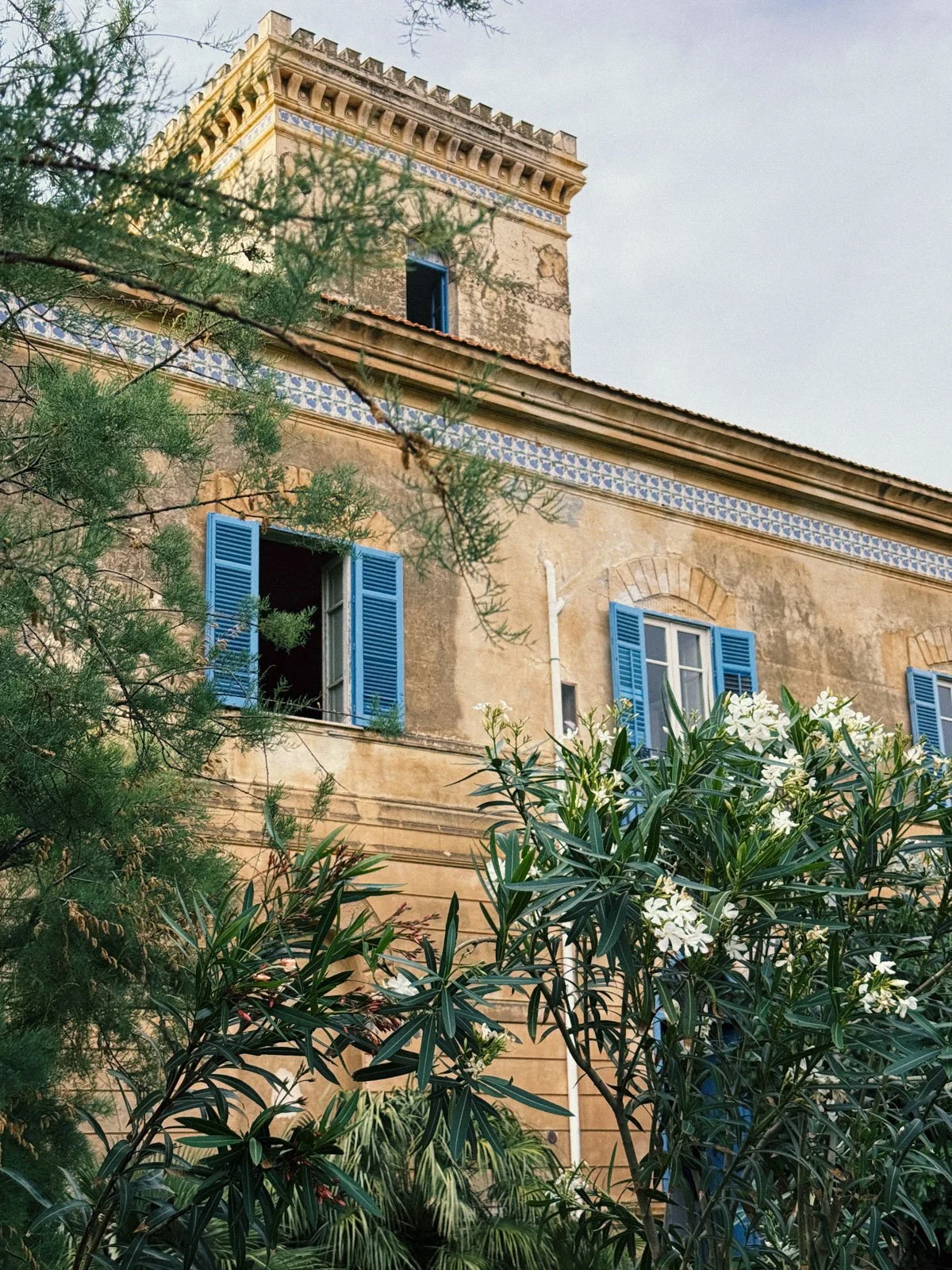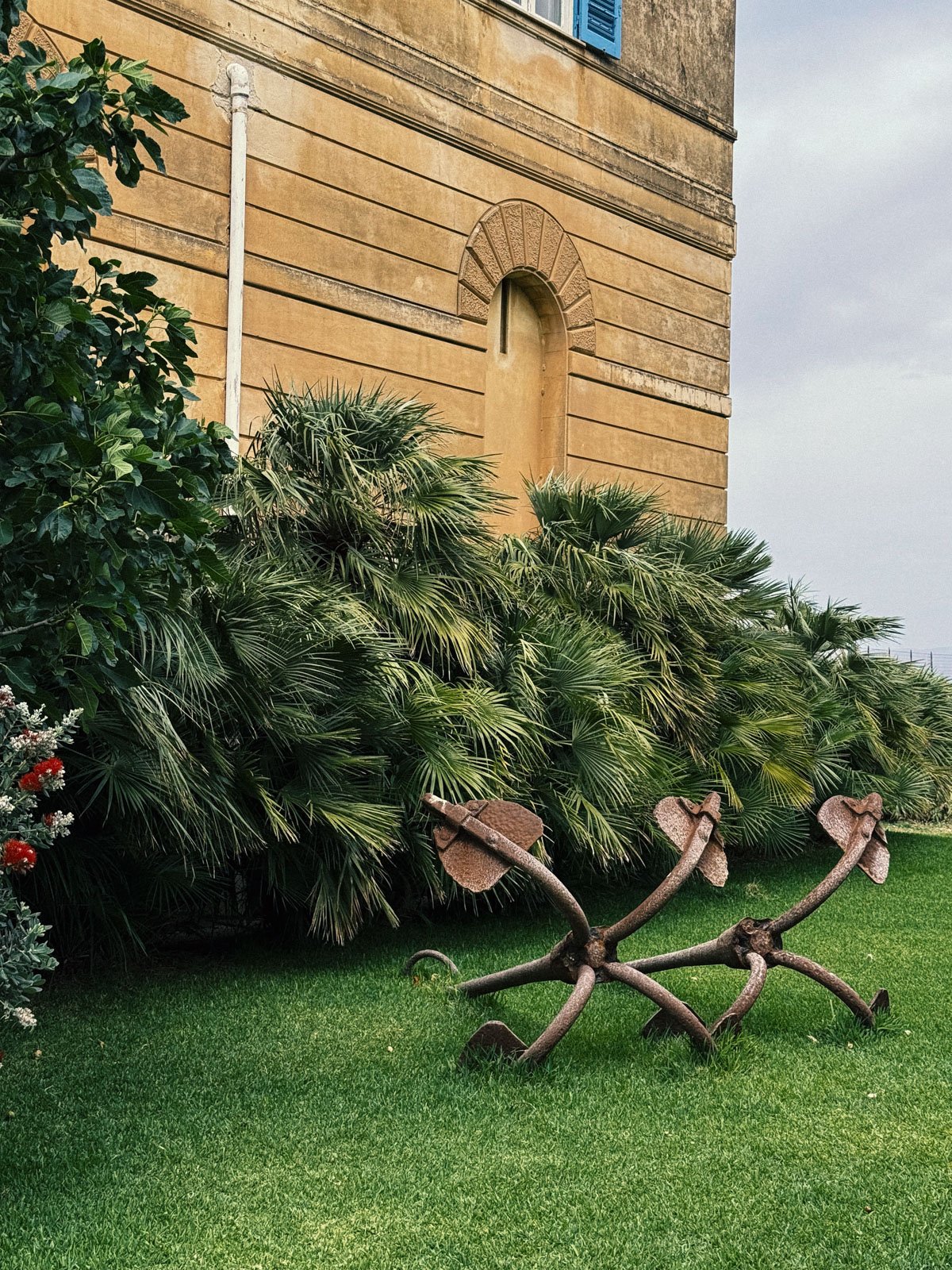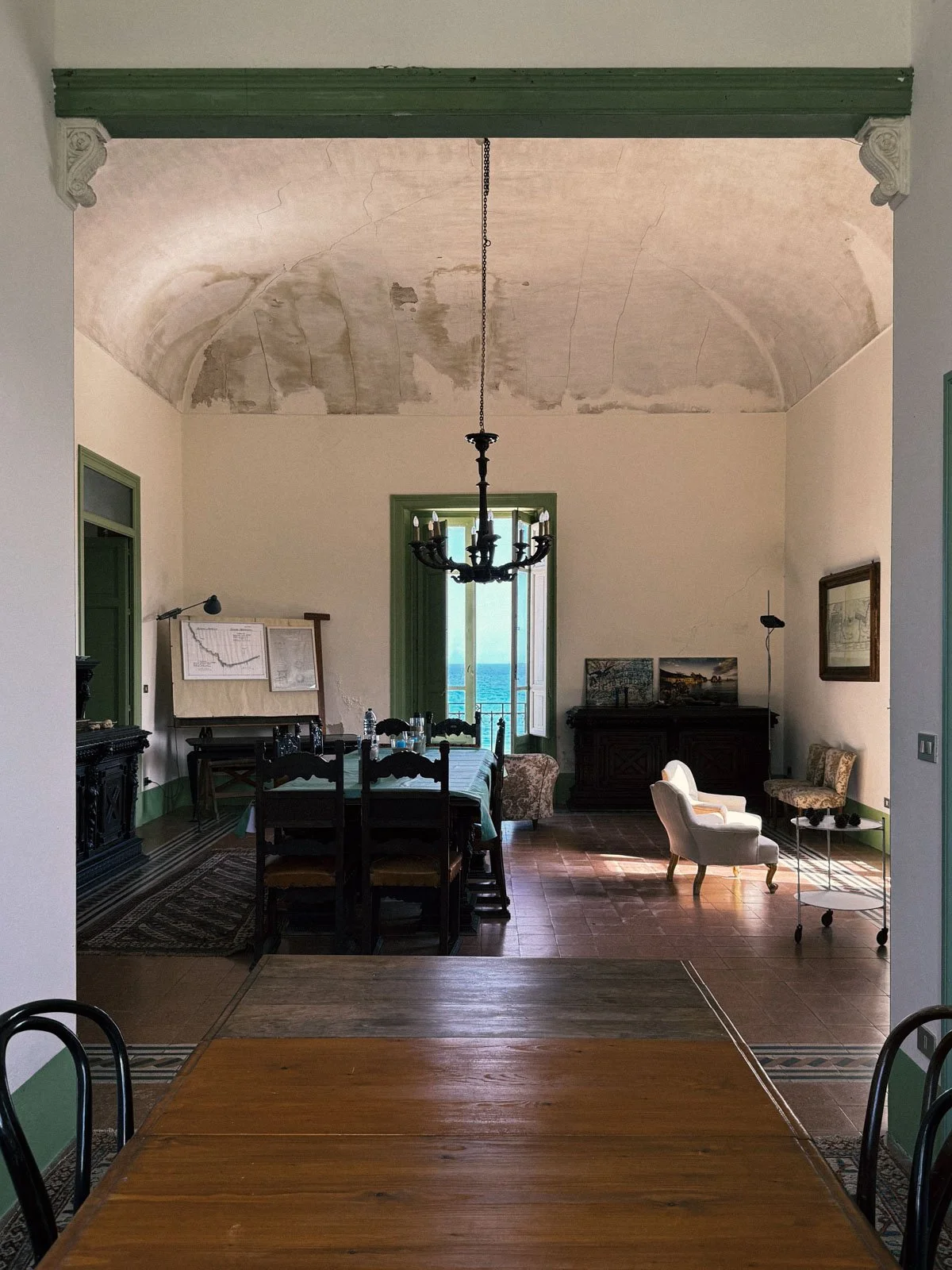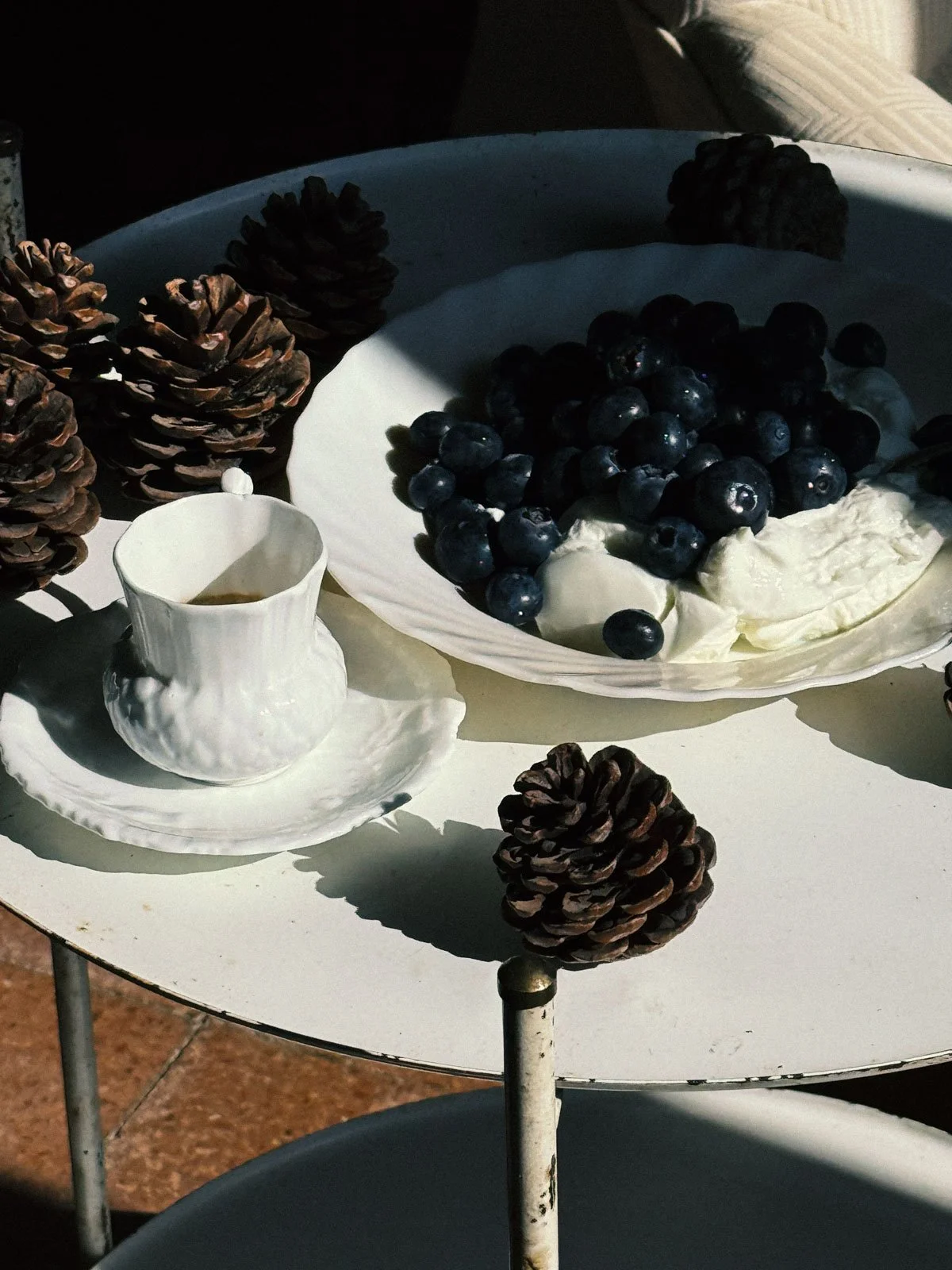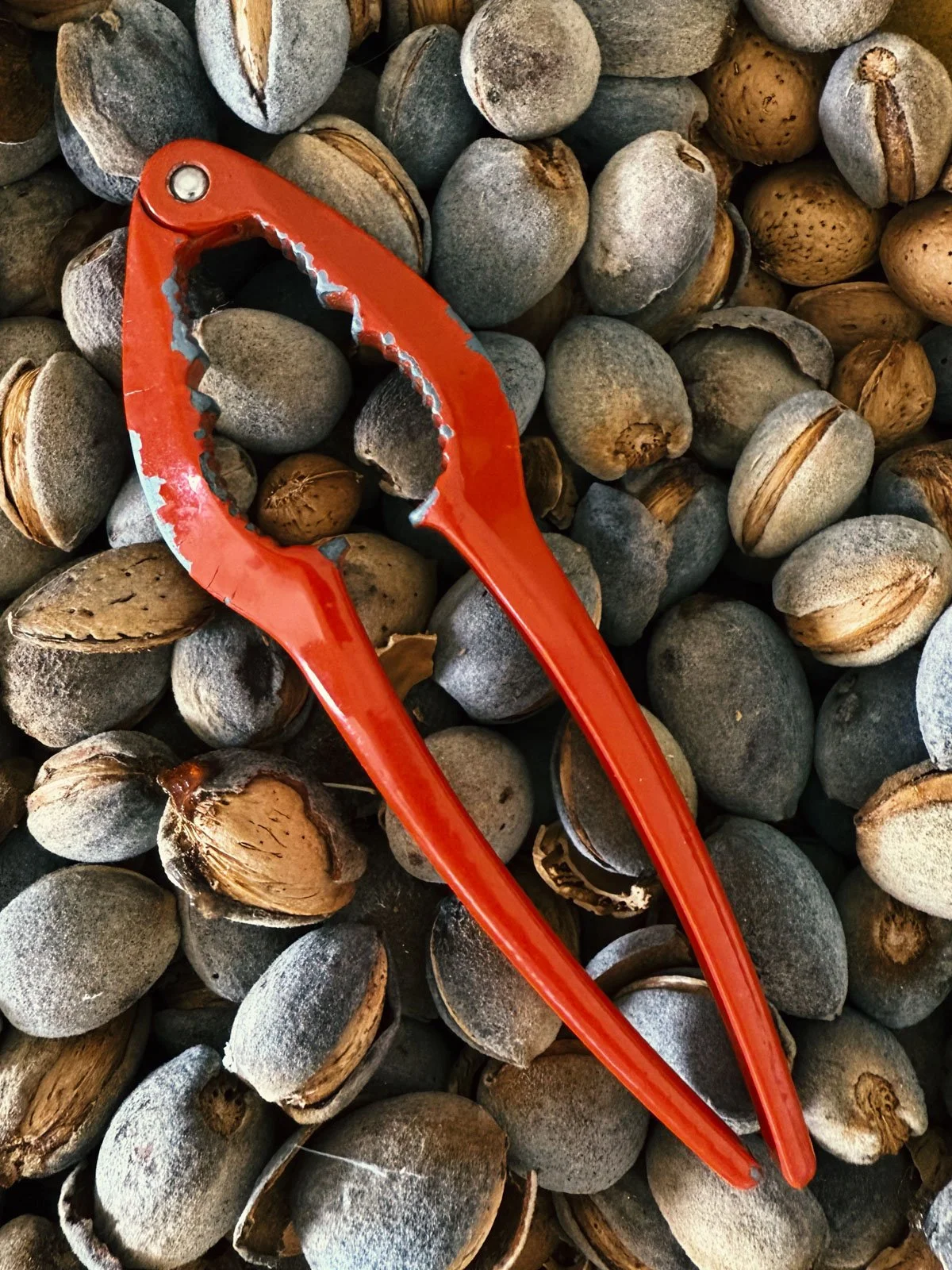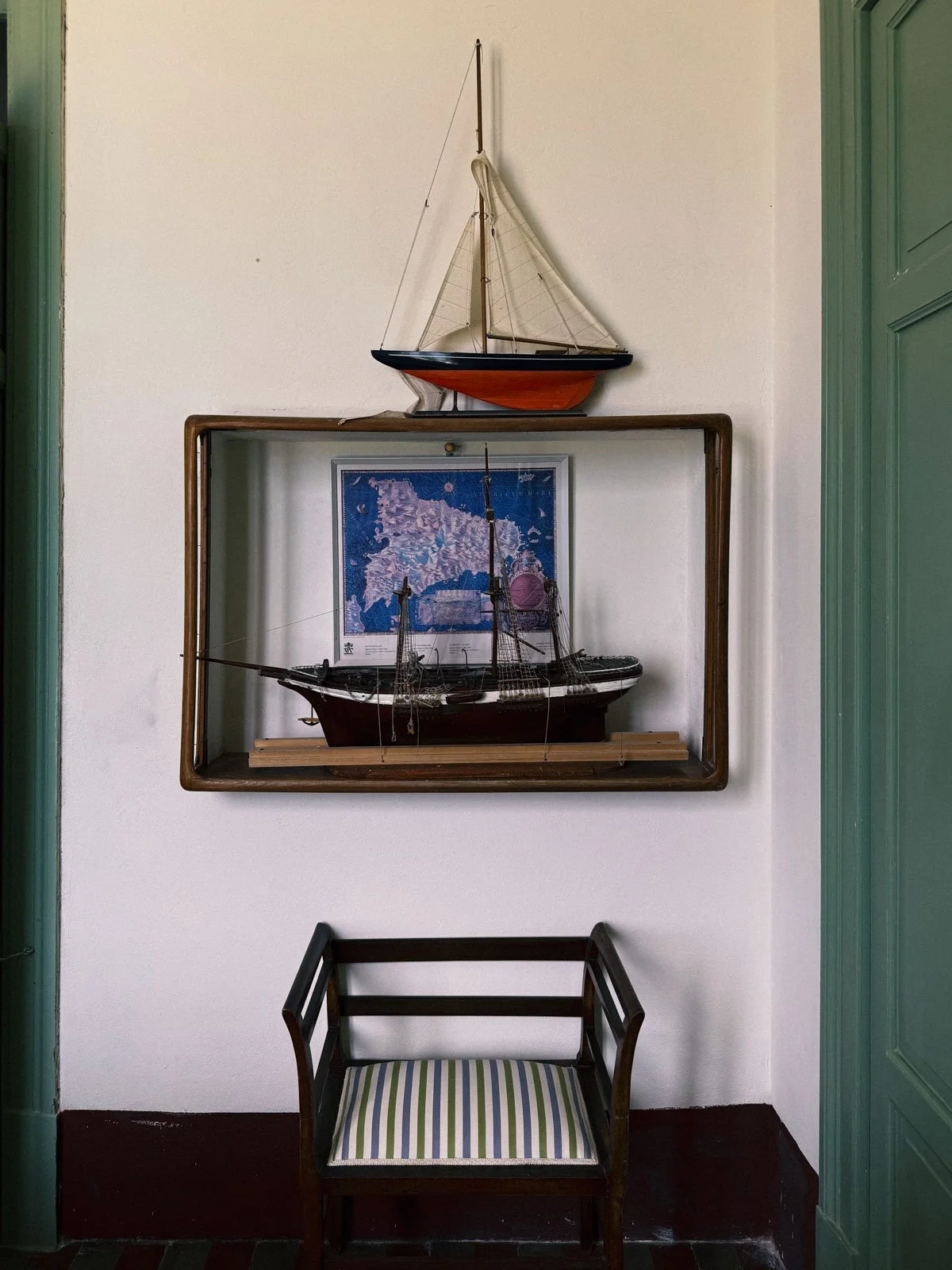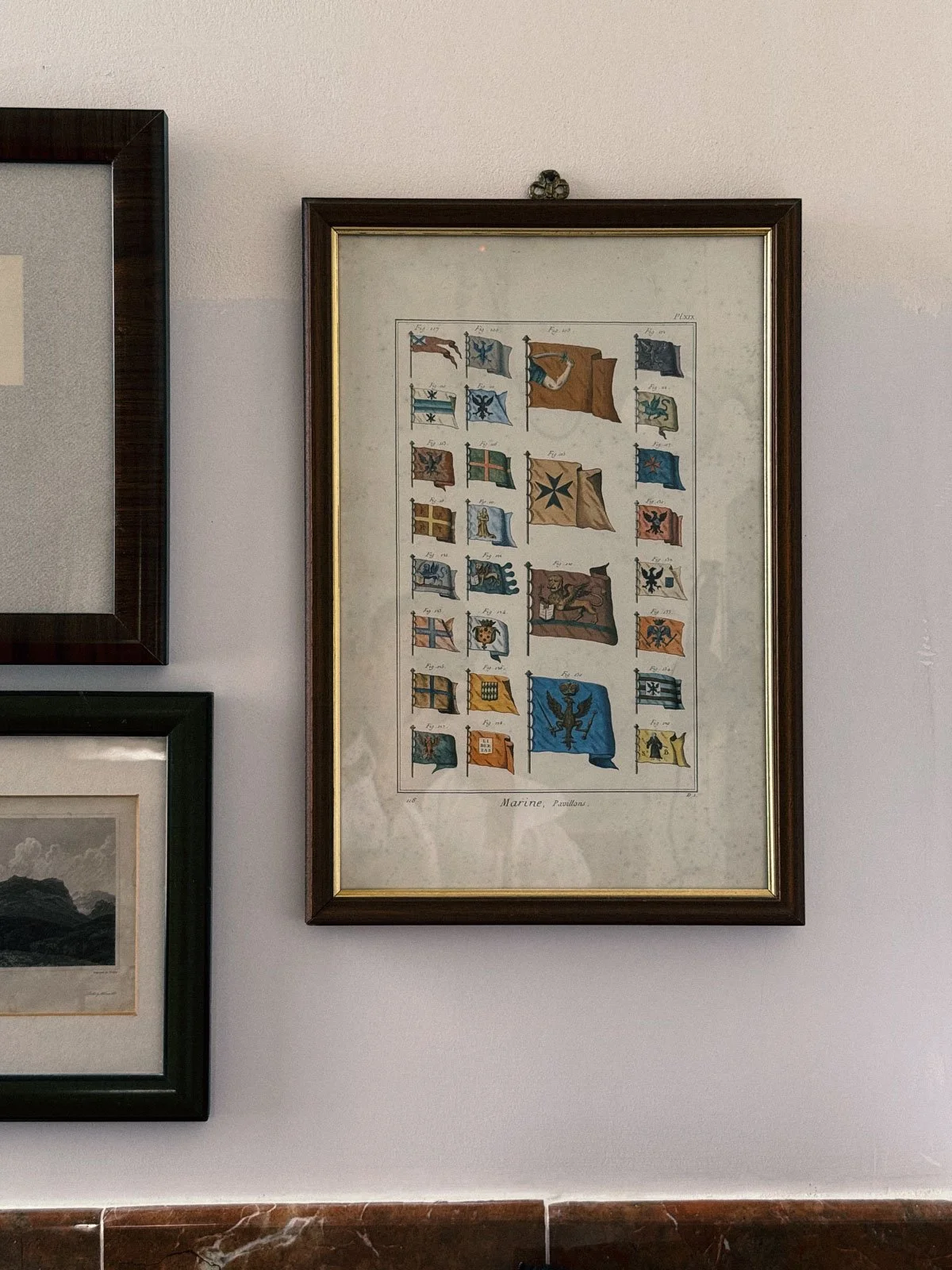A Stay at Tonnara Foderà – Where Time Smells Like Salt
The Why: Not for Entertainment, but for Presence
You don’t come to Tonnara Foderà to be entertained.
You come to remember how it feels to simply be somewhere.
To hear the sea. To feel time stretch. To fall in love with restraint.
And maybe, to return home slightly changed — not because you did more, but because, for once, you let yourself do less.
Arrival: Not Just a Welcome – A Receiving
Tess.
That’s how she greeted us — arms wide, smile quiet. There are places that welcome you, and others that receive you — as if you were meant to arrive. Tonnara Foderà, tucked into the southern coast of Sicily, does the latter.
There is no lobby. No name tags or marble counters. Just the sense that you’ve stepped into someone’s memory — or perhaps your own. The light falls gently here, as if it, too, has been instructed to slow down. A breeze carries in from the sea, along with something else: a subtle permission to let go. It isn’t immediate. But it begins.
It’s not just a stay. It’s a passage.
Setting: Stone, Silence, and Sea
Once a tuna fishery, now a guesthouse wrapped in silence and salt, Tonnara Foderà whispers stories through every sun-worn wall. The buildings, curved and faded, sit so close to the sea that you hear it even when you’re sleeping. Not crashing waves — but presence. Like breath.
The proximity to the water is not performative. The sea isn’t framed for your camera. It simply is. It fills the spaces between the stones and seems to rise through the terracotta underfoot. Even the walls seem shaped by it — softened, as if the salt itself had sculpted them over decades.
Stand still, and you’ll notice that everything around you is still, too. Not in stillness as absence, but in fullness. As if nothing more is needed.
Hospitality: Felt, Not Shown
We arrived late. There was no check-in desk. Instead: a hand-written welcome, a small tour, and a tray of local pastries and almond milk set out like an offering.
No script. No smiles rehearsed. Just a warmth that feels lived-in. Hospitality here is not about perfection — it’s about presence. The kind you find in a well-worn kitchen, or a handwritten note left by someone who knows your rhythm before you speak.
Even the silence is intentional. The hosts appear when needed, and never otherwise. You’re never quite alone — but always left to yourself.
The Interiors: A Study in Patina
The interiors are honest. No sleek lines, no hotel gloss. But terracotta floors that have softened under years of barefoot mornings. Walls that hold imperfections like stories. Linen curtains that ripple in sea air. A kind of patina that tells you: nothing here is trying to be new — and that’s the beauty.
Rooms are not designed. They’re remembered. The furniture is quiet, sturdy, local. The linens are not crisp, but kind. There’s something deeply human in how the light settles across the surfaces — as if the building breathes with you.
It’s not about style. It’s about soul.
History Beneath: Memory Below the Surface
Below the main courtyard, there’s something unexpected. A quiet museum. Not with glass cases, but with memory: tools, nets, iron anchors from when the Tonnara was alive with the rhythm of tuna fishing.
La Mattanza — a word that initially jars, but reveals itself to be part of a sustainable, communal practice, rooted in deep respect for the sea.
Brutal? Perhaps. But also elegant in its balance — nature, timing, restraint.
It was not excess. It was ritual. A choreography between man and water, generations deep. In the low light, you can almost hear it — the weight of the nets, the rhythm of the boats, the dignity of the catch.
The space isn’t curated. It’s kept — as you would keep a memory worth passing on.
Atmosphere: Air and Light, Not Design
Every object here seems chosen, not styled. Every gesture — from a garden path to a ceramic bowl — feels like a continuation of something older.
There are no signature scents, yet everything smells of something: salt, linen, dry herbs. There is no playlist, but you’ll hear sounds that ground you — the shuffle of sandals, the call of a bird, a chair moving gently against stone.
At night, the sky is so dark you forget electricity exists. The wind moves through the courtyard, smelling of thyme and salt. You sleep differently. You breathe differently.
In the morning, it’s hard to tell if the air has changed — or if you have.
Mornings: Nothing but What You Need
The next morning, there is no buffet. Just coffee, impossibly fresh berries, and silence. A table in the courtyard. A cup warmed by a hand. Nothing announces itself. Everything waits.
Time stretches — not endlessly, but gracefully. There’s no urge to check your phone. The sea is still there, reminding you gently: this is what you needed.
The morning doesn’t begin. It unfolds.
